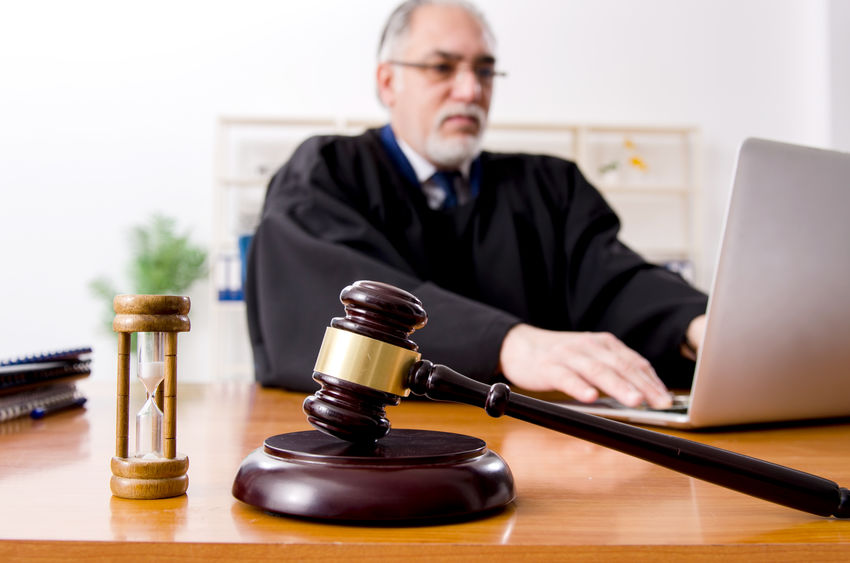Most Judges Do Their Best to Be Fair
 Video Transcribed:
Video Transcribed:
Hello, I am Oklahoma attorney, Brian Jackson. I work with the criminal defense attorneys at Wirth Law Office in Oklahoma. I’d like to talk to you today about why it’s important to know your judge.
I want to start from the standpoint that when anytime you’re dealing with any kind of custody litigation, whether you’re talking about guardianship or a divorce or a paternity suit or a motion to modify. All of these are basically treated as a type of equitable suit. I mean, they are, divorces and paternities are done pursuant to statute, and guardianships as well, but the statutes in question vest the court with pretty broad discretion.
Now, in a guardianship case, there is a constitutional element to that because you’re talking about, if it’s standing over the objection of the parents, you’re talking about invading a fundamental constitutional right as outlined in Troxel v. Granville. However, once the issue of unfitness is established courts have very broad discretion in guardianships.
And in terms of custody litigation courts have very broad discretion. So, it’s important to know your judge, because different judges are going to look at things in different ways. They have different pet peeves and they’re going … and just based on who they are, how they got where they are and, what their background is, can impact very heavily how they’re likely to decide a case.
And bear in mind that anytime you’re dealing with custody, because it’s a best-interest standard between the parents, the court is allowed to consider almost anything that isn’t expressly constitutionally prohibited or expressly prohibited by statute. So it can be anything from, how often you go out on the weekends, to who you’re dating, to how much you drink, whether you smoke, if you do smoke, whether or not you’re doing it in the presence of the children, almost anything is fair game.
I got a lot of questions from clients by the way about things like, “Well, okay, I have my medical marijuana card, is it okay? Is that going to hurt my custody case?” And I mean, the short answer is, maybe it will, and maybe it won’t. It’s a prescription medication, it shouldn’t in theory be a big deal, any more than any other prescription medication, assuming you’re not abusing it.
Marijuana should be in the same category as like, if you have a prescription for opiates or a prescription for Valium, as long as you’re not abusing it, it shouldn’t be an issue. But the fact of the matter is it’s to some extent, going to turn on who your judge is because they are allowed to consider it. They absolutely are.
They’re allowed to consider almost anything they want and to weigh it almost any way they want, as long as it’s not something that’s just absolutely irrational and asinine, because the standards they’re going to be reviewed at if you appeal them, is an abusive discretion standard. And that’s very broad. So it is important to know your judge because there are certain things that are going to impact how the judge will decide a case that is well within their discretion to do.
The other reason too, is there are certain types of like, for example, litigation tactics that can get you in trouble with certain judges. There are judges in Tulsa County, for example, that really, really don’t like lawyers that try to game the process to get an advantage. Well, what do I mean by that?
Well, if they know that there are certain limitations to the procedure that would give their client advantage and they use those to give their client an advantage, it can really piss some of these … these particular judges don’t like that.
And they get upset about it and it can be, it can have a negative impact on the client, on the outcome the client gets. There are certain judges that are what you might call old King Solomon judge. King Solomon judge, basically, as I think of them, a King Solomon judge is a judge who basically likes to call it down the center. In other words, you ask for A, she asks for C, you’re very likely to get B.
And when dealing with judges like that, you want to be aware of that. If they’re going to land in the middle, you want to be aware of that in terms of what kind of relief you ask for. There are judges that are going to be very, very sympathetic towards litigants with certain problems.
For example, if they can tell a sad story, even if it’s not like domestic violence if they can tell a sad story that could potentially gain them an advantage. I recall a particular judge too, who took it rather personally, that a client of mine allowed her child to call the boyfriend dad. And he took offense to this and it did not go well for her in court.
So, it’s really important to know your judge going in because they have a lot of power and if you make a misstep, it can affect you for a long time. And something else to keep in mind is because of the way … because of the Uniform Child Custody Jurisdiction and Enforcement Act. Once your case is in front of a particular court, it’s liable to stay there. It will most likely stay there. So you’re going to have the same judge in the long term.
So what that means is, you get divorced in front of that judge and say like three, four, or five years down the road, either you or she file a motion to modify. You’re very likely to be in front of that same judge unless he or she is retired or moved on, it’s a good chance you’re going to have that same judge again.
And because of that, again, you want to be careful to know what their temperament’s like and how they like to handle things because that can come back and bite you in the backside. And one thing you don’t want is to have a judge that remembers you and remembers you for a bad reason.
So it’s important to know your judge. This is another aspect of that, are you want a good … you want a lawyer who really knows the judge, knows how to deal with him, has a good working relationship. Because this is another thing, if the judge won’t like your lawyer, it shouldn’t affect your case, but the practical effect of it is it may.
I mean, I think judges do their best to be as fair and reasonable as they possibly can be, but judges are human just like anybody else. And if you’re working with somebody they dislike, it is likely to cause them to view them a certain way. They may look harder at their pleadings, they might look harder at their evidence before making a decision. So, it’s very, very important to know your judge and to get an attorney who knows the judge well.



